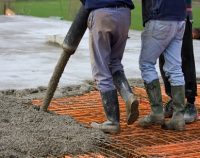Deck Design for Steel Bridges: 4 PDH
$24.00
In this course the student will understand design options & methods for various steel bridge deck types such as concrete deck slabs, metal grid decks, orthotropic steel decks, wood decks, and several others. Instructor: Raymond Bosek, PE
SPECIFIC KNOWLEDGE OR SKILL OBTAINED
This course teaches the following specific knowledge and skills:
- Explain analysis and design methods of concrete decks
- Understand the different types of precast deck slabs and placement sequence
- Describe formwork and methods
- Describe metal grid decks and design considerations
- Understand design & construction methods of metal grid decks
- Describe orthotropic steel decks and design considerations
- Understand design & construction methods of orthotropic steel decks
- Explain wood decks and the various types
- Describe other types of deck systems and design consideration
CERTIFICATE OF COMPLETION
You will be able to immediately print a certificate of completion after passing a 21 question multiple-choice quiz. The quiz can be retaken unlimited times until a passing grade of 70% or better is earned. This course satisfies four professional development hours (PDH) of continuing education.
Preview CourseClick “Preview Course” to View Prior to PurchaseClick “Add to Cart” to Purchase and Access Quiz



